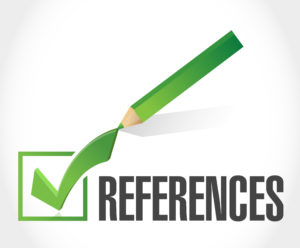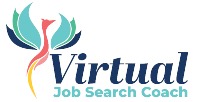So, you’ve been invited for an interview? Awesome! But do you know what type of interview it will be and what to expect? Today I am going to explain 9 different types of interviews so you know exactly what to be prepared for so you can outshine your competition!
You know that excitement you feel when you finally get that phone call or email you’ve been hoping for inviting you to interview for your dream job? YES! You enthusiastically confirm the day, time, and location and eagerly hang up the phone or hit send on your email. But did you remember to ask what type of interview it will be or what to expect? The two most important questions you need to ask the caller who is booking your interview appointment are: WHO will you be meeting with (get full names and titles) and WHAT style of interview will it be?
There are many types of interviews and I’m going to explain the 9 most common so regardless of which type you’re scheduled for, you will know what to expect and how to improve your performance.
The 9 Most Common Interview Types:
#1) Immediate Screening Interview:
An immediate screening is when an interviewer calls you and asks if they can ask you a few questions right at that moment. The purpose is usually to narrow down a large pool of candidates by asking a few key questions to determine if you should be included or excluded from the next stage. These types of interviews are often performed by an HR person, recruiter, or an assistant and usually involve 3 or 4 questions. Listen carefully to the question(s) and respond clearly with confidence. Before concluding the call be sure to ask what the next step will be.
If you received the call during an inappropriate time….for example, you’re in your present job, you’re driving, you are in the middle of the grocery store, then make sure to communicate that and reschedule a time that is appropriate for you.
#2) Pre-Screening Interview:
A pre-screening interview is like an immediate screen, the only difference is the interviewer will usually contact you to book a day and time. This is ideal because it gives you time to research the company and review the posting ahead of time to ensure your answers are aligned with what they are looking for.
In 98% of my recruitment projects, I perform pre-screening interviews.
I use this style for several reasons, to narrow down my shortlist when I have too many great candidates to consider, to screen out candidates that may not match some key things (like salary expectations), and determine who I want to meet face-to-face or recommend to my client for an in-person interview.
I usually ask 7 or 8 questions which takes about 20 to 30 minutes. This gives me an opportunity to get a sense of the person’s personality, potential, and scope of experience to determine if they might be a good fit with the position/team/industry and company culture.
#3) Preliminary Reference Checking:
This is a technique I sometimes use when recruiting as a consultant for a corporate client. I will do this after a brief immediate or pre-screening interview when I like the impression I have of the candidate and their resume is a perfect fit with what I am looking for, or when I have several candidates but my client only wants to meet a maximum of 3 final candidates. 
Doing a preliminary reference check helps me narrow down to my top 3. I will usually speak to at least one or two references before deciding to move a candidate forward.
If I call you and ask for references and you can’t supply me with their names and contact information within 24 hours I will likely disqualify you. Therefore, it’s important when you start your job search to have your referees picked out, lined up, and ready.
#4) Scheduled Telephone or Video Interview:
A scheduled telephone or Video interview is just that. It’s an interview performed by telephone or live video with a recruiter, employer, and/or hiring manager. This is often stage 1 or stage 2 in a hiring process.
Phone and Video interviews are extremely popular right now due to the impact of the COVID-19 virus. Telephone and video interviews are often used when a candidate is not local to the area where the position is located, or if the interviewer is in a head office that is not in the same geographic location as the position. It may be a one-to-one interview or with a team or panel of interviewers.
ALWAYS ask for the names and titles of who will be on the call. You want to know who your audience is so that you can tailor your answers and give examples that they can relate to most.
#5) Traditional One-to-One Interview:
A traditional one-to-one interview is one of the most common, followed by a panel interview. It tends to be more casual in style, often conversational rather than complex or behavioural based interview questions, or it can be a more formal structured style with specific interview questions of various types.
Depending on the size of the company, a One-to-one is often performed by the immediate supervisor, general manager, company owner or HR Professional if they have one. Usually, it will be the first in a series or at the very least a 2-part interview hiring process.
#6) Sequenced Interview:
A sequenced interview usually starts with a one-to-one with the HR Professional, consultant, or recruiter then progresses to one or more interviews with a Supervisor, Manager, Regional Manager, Director, or Owner, and then may involve a panel interview with a team.
Obviously, due to the number of interviews, this process usually takes 2 to 6 weeks before a final candidate is selected, and an offer presented. I’ve had clients who have gone through this process consisting of 4 or 5 steps, sometimes with the last one consisting of testing. Often large corporations and security-sensitive industries such as banking or computer technology and security use a sequenced interview process.
#7) Panel Interview:
A panel interview usually involves 2 to 6 people consisting of various roles – management, supervisors, HR, other department leads, and sometimes partnership organizations, that would usually have considerable interaction or work closely with the position being hired for.

These interviews are usually structured with interviewers taking turns to ask questions, while all observe and take notes. Panel interviews are quite popular, and it is extremely important in a panel interview to use eye contact with all members of the group, not just the person asking the question. – this is a mistake I see many candidates make.
Holding eye contact with each person in the room demonstrates confidence and your ability to include and engage others in a team or group situation. Ask the person who books your interview for the names and titles of the people who will be attending the interview.
It is important for all interviews, but especially panel interviews to ALWAYS bring extra copies of your documents (resume, cover letter, and any addendum items). You never know when someone gets subbed in at the last minute due to illness or an emergency comes up and a manager sends another team member in their place. This person may not have been supplied with a copy of your resume – so won’t you come across as highly prepared when you can offer them a copy!
#8) Team Interview:
A team interview is usually performed as a second interview with members of the team you will be working closely with…this allows those individuals to meet and engage with you and determine if you are the right fit and personality for their team.
This can be a formal interview with questions that each individual has pre-determined they want to ask, or it can be more informal and conversational to give the team a chance to assess your personality fit with them. Interpersonal skills are very important in these interviews. You want to be prepared with examples that demonstrate your characteristics of collaboration, team contribution, effort, humor, and leadership if that will be your role on the team.
#9) Group Interview:
A group interview is when several candidates are brought into a room together and interviewed simultaneously as a group. This style of interview is somewhat unorthodox and is more common in organizations that have a heavily competitive environment or industry, an outside-the-box culture and style, or those who are hiring for sales, customer service, or business development types of roles.
These interviews can sometimes also be held when a company has several openings for the same position, and there may be several interviewers involved. Most candidates, particularly introverts, find this type of interview very stressful because you are competing live against and in front of your competition.
One of the objectives of this style of interview is to test how you interact with and involve others in a group and how you answer questions and solve problems on the spot and how resourceful you are in high-stress situations. The term ‘group interview’ is often mistaken for a team or panel interview so if you are told it is a group interview I recommend you clarify if they mean a panel interview or a situation involving several candidates being interviewed simultaneously. When you know what you are walking into you can be better prepared.
 As I mentioned, group interviews are not a common interview practice but if you are faced with this style of interview, my recommendation is to realize that part of the test is to see how you interact together with your competition. Start by introducing yourself to each candidate, get their names and if you want to be bold, ask them to describe their greatest strength in 10 seconds and make a note of this. Then as questions or challenges are posed either to you directly or to the group – you can involve others personally by name in your answer – this will demonstrate your leadership, initiative, and ability to engage others.
As I mentioned, group interviews are not a common interview practice but if you are faced with this style of interview, my recommendation is to realize that part of the test is to see how you interact together with your competition. Start by introducing yourself to each candidate, get their names and if you want to be bold, ask them to describe their greatest strength in 10 seconds and make a note of this. Then as questions or challenges are posed either to you directly or to the group – you can involve others personally by name in your answer – this will demonstrate your leadership, initiative, and ability to engage others.
You want to be confident and jump in as a team member in answering questions but also be careful not to monopolize all the answers as this will work against you. Try thinking about it like being back in high school when the teacher posed a question to the class and multiple students would offer up a variety of answers. You can also think about it like being the member of a sports team where a sports scout is watching and assessing the players for scholarships – you wouldn’t try to sabotage your fellow players as this will make you look bad, your focus would be showing your best skills and abilities while helping the team to win the game.
What you’ve learned here is just the tip of the iceberg when it comes to job search strategies and interview preparation. To learn more, check out my YouTube channel (VirtualJobSearchCoach), where I post videos to help job seekers like you, determine, pursue, and land their dream job!
If you would like one-to-one coaching to equip you with the confidence, the necessary tools, critical knowledge, and strategies to find and land your ideal job – then let’s talk! You can book a complimentary 15-minute discovery call directly in my calendar at https://calendly.com/virtualstacey and let’s chat about how I can help you fast-track your job search success.


